
Tadjoura: The Pearl of the Gulf of Tadjoura
Tadjoura, often referred to as the 'White City' due to its many whitewashed buildings, is one of the oldest towns in Djibouti and a captivating destination for travelers. Located on the Gulf of Tadjoura, this historic city is a blend of rich culture, stunning landscapes, and a tranquil seaside atmosphere that beckons visitors from around the globe. Start your exploration with a visit to the famous Tadjoura Mosque. Its beautiful architecture and the simplicity of its design perfectly reflect the city's peaceful vibe. The mosque stands as a testament to the deep-rooted Islamic culture that shapes everyday life in Tadjoura. Walking through the narrow streets, you'll find local markets bustling with vendors selling everything from fresh fish to intricate handicrafts. The vibrant colors and lively atmosphere of these markets are sure to leave a lasting impression. Nature lovers will be thrilled by Tadjoura's pristine beaches and crystal-clear waters. The nearby Day Forest National Park offers a unique opportunity to see Djibouti's endemic wildlife and lush greenery. If you're an adventure enthusiast, the Gulf of Tadjoura provides excellent conditions for snorkeling and diving, allowing you to discover the rich marine life that thrives just beneath the surface. For an unforgettable experience, take a boat trip to the nearby Sable Blanc, a secluded white sandy beach that feels like a little slice of paradise. Tadjoura's welcoming locals and their warm hospitality will make you feel at home. Don't miss the chance to try traditional Djiboutian cuisine at one of the local eateries. From flavorful stews to fresh seafood dishes, the culinary delights are a perfect way to cap off your day of sightseeing in this charming city.
Local tips in Tadjoura
- Visit the local markets early in the morning to experience the freshest produce and the most vibrant atmosphere.
- Carry cash as many local vendors and smaller shops may not accept credit cards.
- Respect local customs and dress modestly, especially when visiting religious sites.
- Hire a local guide for excursions to the Day Forest National Park to gain insightful knowledge about the flora and fauna.
- Try to learn a few basic phrases in French or Arabic, as these are the primary languages spoken.
Tadjoura: The Pearl of the Gulf of Tadjoura
Tadjoura, often referred to as the 'White City' due to its many whitewashed buildings, is one of the oldest towns in Djibouti and a captivating destination for travelers. Located on the Gulf of Tadjoura, this historic city is a blend of rich culture, stunning landscapes, and a tranquil seaside atmosphere that beckons visitors from around the globe. Start your exploration with a visit to the famous Tadjoura Mosque. Its beautiful architecture and the simplicity of its design perfectly reflect the city's peaceful vibe. The mosque stands as a testament to the deep-rooted Islamic culture that shapes everyday life in Tadjoura. Walking through the narrow streets, you'll find local markets bustling with vendors selling everything from fresh fish to intricate handicrafts. The vibrant colors and lively atmosphere of these markets are sure to leave a lasting impression. Nature lovers will be thrilled by Tadjoura's pristine beaches and crystal-clear waters. The nearby Day Forest National Park offers a unique opportunity to see Djibouti's endemic wildlife and lush greenery. If you're an adventure enthusiast, the Gulf of Tadjoura provides excellent conditions for snorkeling and diving, allowing you to discover the rich marine life that thrives just beneath the surface. For an unforgettable experience, take a boat trip to the nearby Sable Blanc, a secluded white sandy beach that feels like a little slice of paradise. Tadjoura's welcoming locals and their warm hospitality will make you feel at home. Don't miss the chance to try traditional Djiboutian cuisine at one of the local eateries. From flavorful stews to fresh seafood dishes, the culinary delights are a perfect way to cap off your day of sightseeing in this charming city.
When is the best time to go to Tadjoura?
Iconic landmarks you can’t miss
Djibouti Palace Kempinski
Experience unparalleled luxury in Djibouti at the Palace Kempinski, where African and Arabian elegance meet the stunning Gulf of Tadjourah views.
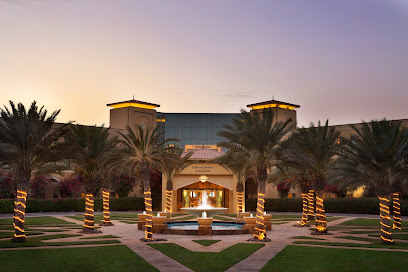
Acacias Hotel
Experience comfort and convenience at Acacias Hotel Djibouti, your gateway to relaxation and exploration on the waterfront.

Mosquée Al-Hamoudi
Discover Djibouti's Islamic heritage at Mosquée Al-Hamoudi, a historic mosque with stunning architecture and cultural significance in the heart of the capital.
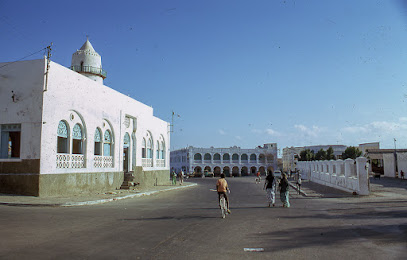
The People's Palace
A monumental symbol of Djibouti's freedom, the People's Palace stands as a tribute to the nation's history and a beacon for its future.
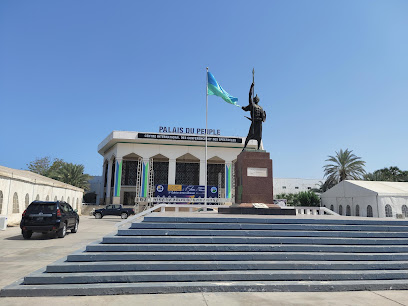
Menelik Hotel
Experience Djibouti's charm at the historic Menelik Hotel, offering comfort, culture, and a prime location in the heart of the city.

Sables blancs
Discover Sables Blancs: Tadjoura's pristine beach with turquoise waters, white sands, vibrant marine life, and Djiboutian charm. A coastal paradise awaits!
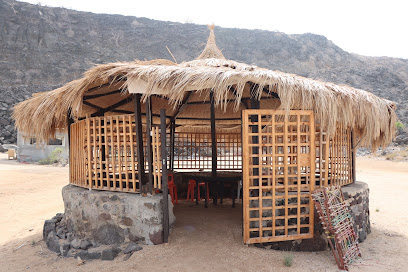
Moucha Island
Discover Moucha Island: A serene coral paradise in Djibouti offering pristine beaches, vibrant marine life, historical sites, and tranquil escapes.
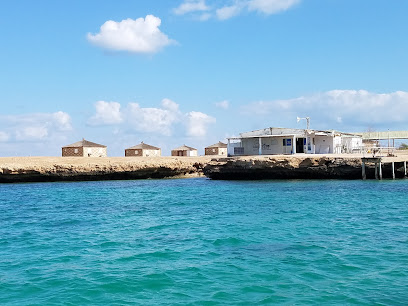
Gulf of Tadjoura
Explore Djibouti's Gulf of Tadjoura: Swim with whale sharks, dive in vibrant coral reefs, and discover rich culture in a stunning marine paradise.
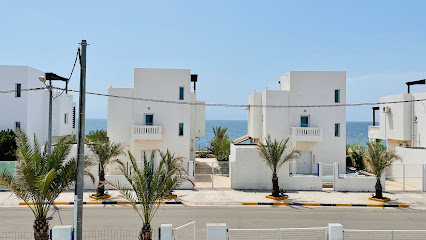
Hotel Auberge Boulaos
Experience comfort and convenience at Hotel Auberge Boulaos, your gateway to exploring the vibrant city of Djibouti.

Turkish Mosque
Djibouti's largest mosque, a gift from Turkey, showcasing Ottoman architecture and a symbol of strong bilateral relations.
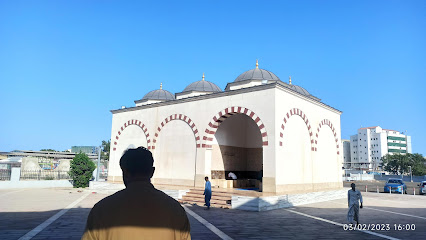
Day Forest National Park
Escape to Djibouti's green heart: Hike through lush juniper forests, spot unique wildlife, and discover the cultural richness of Day Forest National Park.
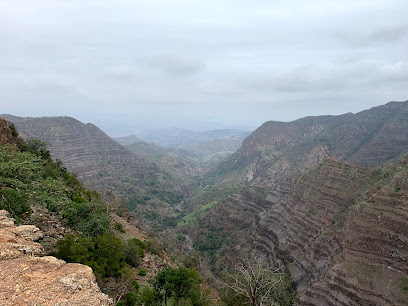
DECAN Refuge
Discover Djibouti's wildlife at DECAN Refuge, a sanctuary dedicated to rescuing and rehabilitating animals while promoting conservation and education.
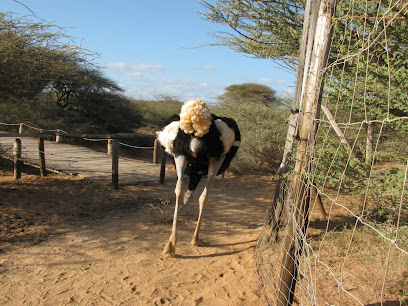
Hotel Rayan Djibouti
Comfortable and conveniently located hotel in Djibouti City, offering essential amenities and easy access to local attractions.

Al Sada Mosque
Discover Al Sada Mosque in Djibouti City, a historical landmark showcasing Islamic architecture and offering a glimpse into the nation's rich cultural heritage.
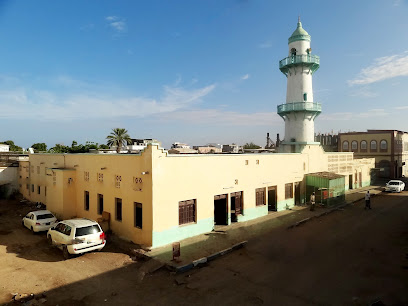
Mosqueé Al-Nadwat
Discover Mosqueé Al-Nadwat in Djibouti City: A serene sanctuary of Islamic art, culture, and Djibouti's rich spiritual heritage.
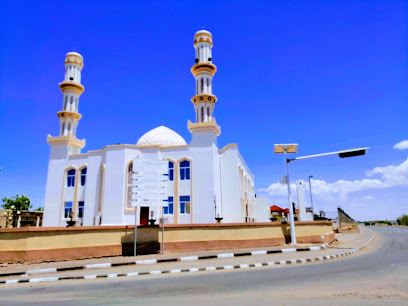
Essential places to dine
Melting Pot
Experience the rich culinary diversity at Melting Pot in Djibouti—where every dish tells a story and every meal is an adventure.
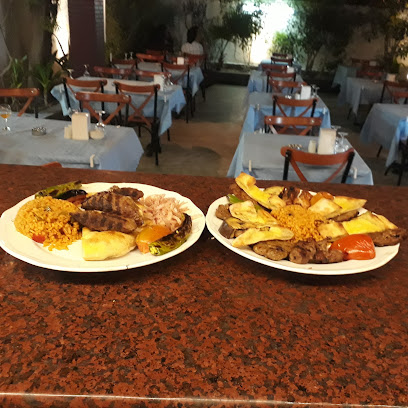
Signatures Restaurant Djibouti
Savor the rich flavors of India at Signatures Restaurant Djibouti - a culinary gem offering authentic dishes in a warm ambiance.
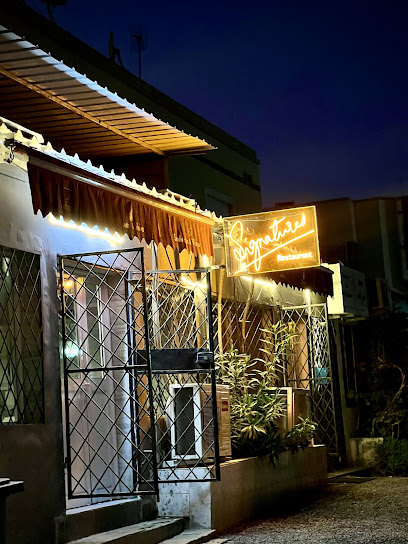
Moonlight Restaurant
Discover authentic Djiboutian flavors at Moonlight Restaurant – where every dish tells a story.
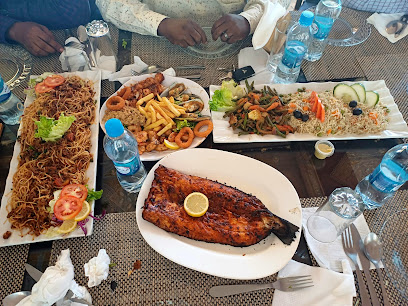
Café de la Gare
Discover the charm of French cuisine at Café de la Gare in Djibouti – where every meal is a delightful journey into flavor.
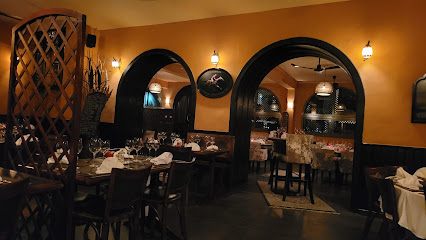
Restaurant La Mer Rouge
Discover La Mer Rouge: A Culinary Delight Blending Seafood, Asian Noodles & French Cuisine in Djibouti's Heart.
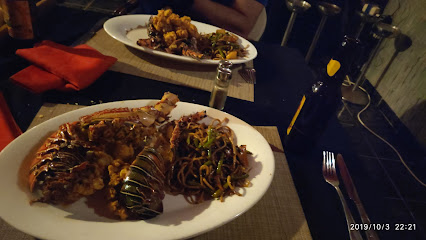
La Pergola
Experience authentic West African flavors at La Pergola in Djibouti – where every dish tells a story.
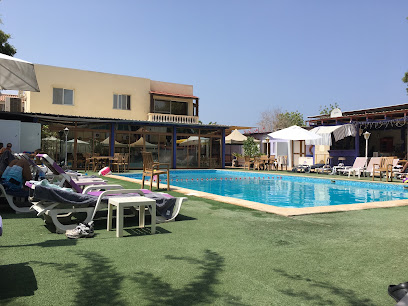
Al-Basha Bin Madi Restaurant
Discover authentic Yemenite cuisine at Al-Basha Bin Madi Restaurant in Djibouti – a delightful culinary journey awaits every traveler.
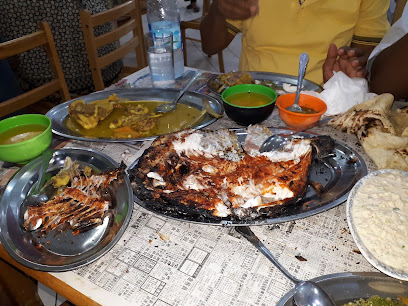
Singh's Restaurant
Experience authentic Indian flavors at Singh's Restaurant in Djibouti, where every meal is a celebration of rich culinary traditions.
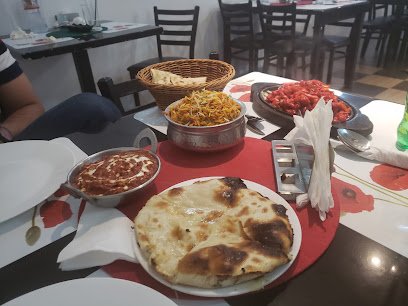
Janateyn Yemeni restaurant
Experience authentic Yemeni cuisine in Djibouti at Janateyn Yemeni Restaurant - A culinary journey full of flavor.
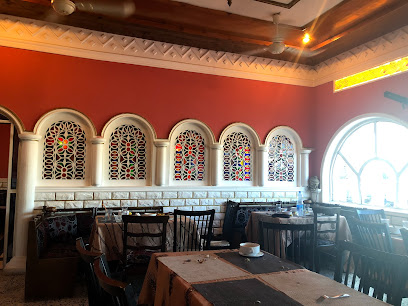
Saba Restaurant
Experience authentic Yemenite cuisine at Saba Restaurant in Djibouti - where flavors meet tradition in every dish.
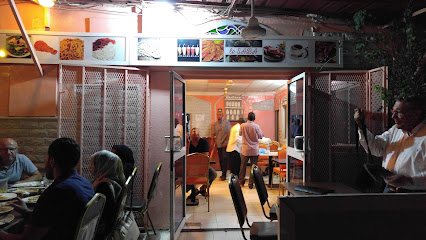
بن ماضي المندي
Savor the authentic taste of Yemen at بن ماضي المندي in Djibouti - A culinary journey through rich flavors and vibrant culture.
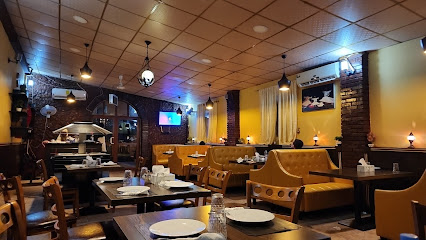
Restaurant Le Longchamp مطبخ بن ماضي
Savor authentic Djiboutian cuisine at Restaurant Le Longchamp, where every meal is a celebration of local flavors and hospitality.
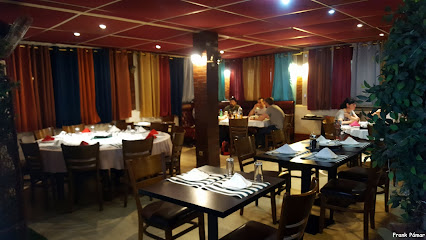
Lac Assal Restaurant
Experience authentic Djiboutian cuisine with stunning views at Lac Assal Restaurant – where every meal is a celebration of local flavors.
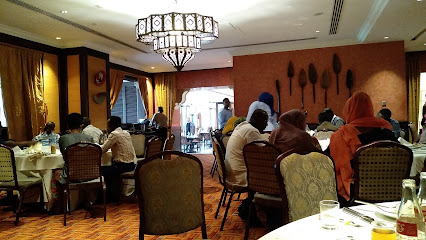
Tentazioni
Discover authentic Italian cuisine at Tentazioni in Djibouti - where every dish tells a story and every bite is unforgettable.
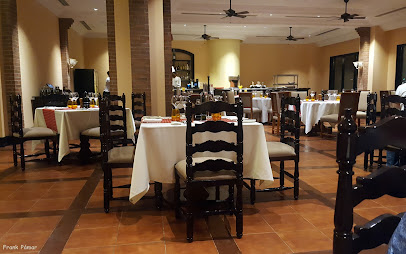
Restaurant La Terrasse مطعم تراس بن ماضي
Experience authentic Ethiopian flavors at Restaurant La Terrasse in Djibouti, where vibrant dishes meet warm hospitality.
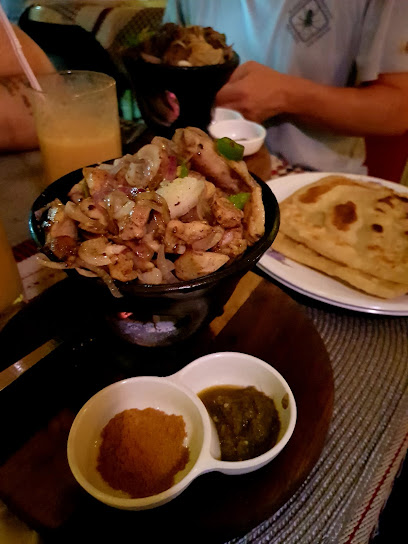
Markets, malls and hidden boutiques
Magasin Chez Farah
Explore Djibouti's Magasin Chez Farah for unique gifts and authentic local crafts that capture the spirit of this vibrant region.
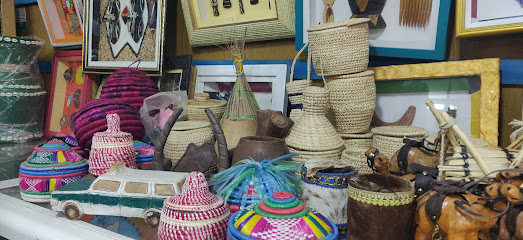
Bait Shops
Explore Bait Shops in Djibouti for a blend of fishing culture and local artistry, where every visit offers unique finds and vibrant community spirit.
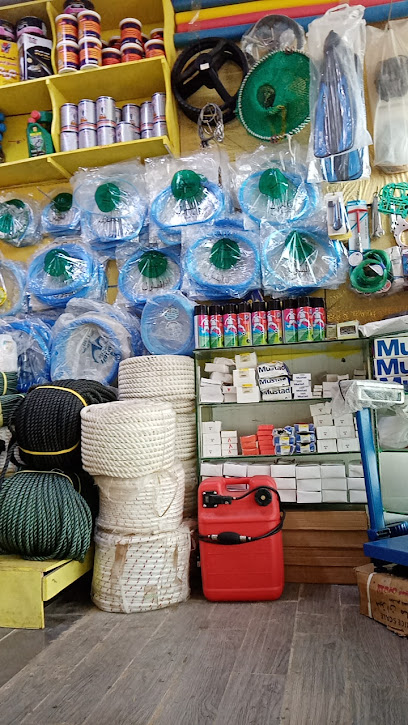
Godoria Shop
Explore Godoria Shop in Djibouti - where local fashion meets vibrant culture in a unique shopping experience.
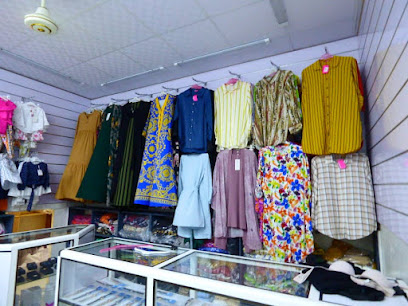
MAGASIN LE BONHEUR PRET A PORTER
Explore Djibouti's fashion scene at Magasin Le Bonheur Prêt à Porter, offering stylish apparel and unique local designs that celebrate culture.

Nouveau Pêcheries de tadjourah
Discover the vibrant flavors of the sea at Nouveau Pêcheries de Tadjourah, where fresh seafood meets rich local culture in a bustling market atmosphere.

Ali Baba Treasures
Explore the vibrant culture of Djibouti at Ali Baba Treasures, your go-to destination for unique gifts and handcrafted local treasures.
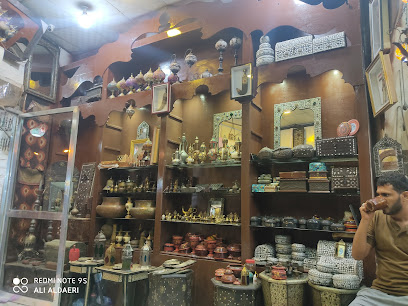
Bricocoeur- Vos Cadeaux personnalisés
Explore Bricocoeur in Djibouti for unique personalized gifts that capture the essence of your travels and make cherished memories.
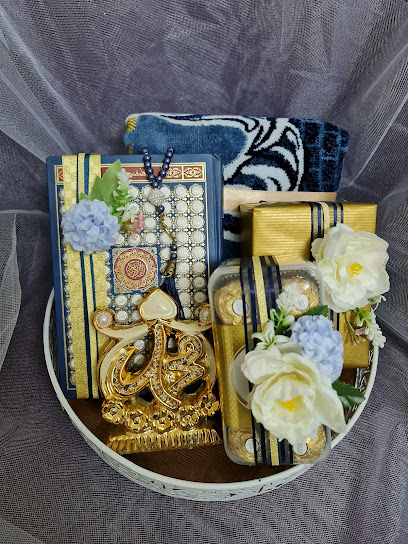
Boulevard de gaule
Explore Boulevard de Gaulle: Djibouti's vibrant gift shop offering unique local artifacts and souvenirs that reflect the rich culture and heritage.

Sacdiya sharaf
Discover unique gifts and local crafts at Sacdiya Sharaf, a charming gift shop in Djibouti that showcases the creativity and culture of the region.

Boutique Artisanaux
Discover unique home goods and authentic souvenirs at Boutique Artisanaux in Djibouti, where local craftsmanship meets charming ambiance.
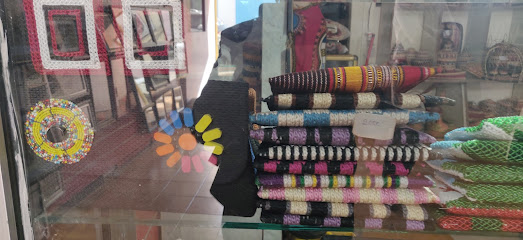
The one shopping
Explore 'The One Shopping' in Djibouti for unique gifts and souvenirs that reflect the vibrant culture and artistry of the region.

Boutique Moderne
Discover the essence of Djibouti's fashion scene at Boutique Moderne, where unique clothing and vibrant styles await every traveler.
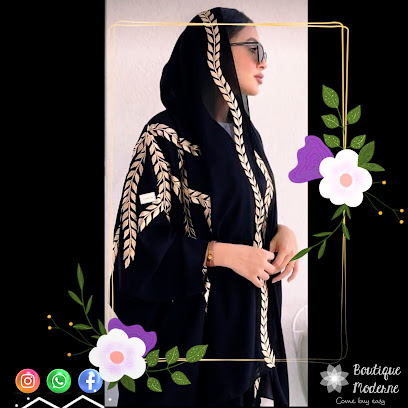
FabandMia
Discover FabandMia in Djibouti, the premier kilt shop where tradition meets modern flair, offering a unique cultural experience for every visitor.

DJIB SARADINE
Explore Djib Saradine: Djibouti's premier shopping mall with a rich cultural vibe and diverse shopping options.

PHARMACIE DU NORD
Discover the essential health services at Pharmacie du Nord, a reliable pharmacy in Tadjoura catering to your travel health needs.
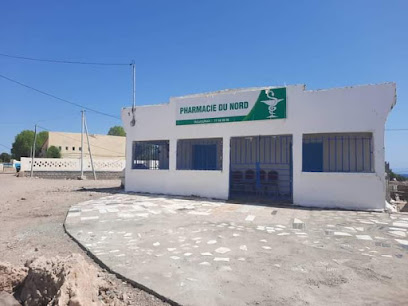
Essential bars & hidden hideouts
Melting Pot
Discover the eclectic flavors of Melting Pot, a premier dining destination in Djibouti offering seafood, sushi, burgers, and a lively atmosphere.
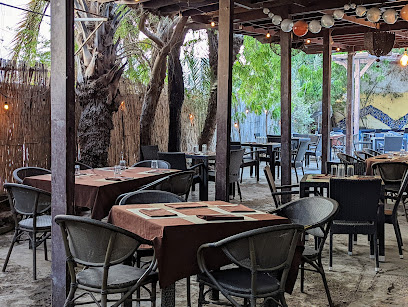
11 Degrees North
Discover the lively atmosphere of 11 Degrees North, Djibouti's premier pub offering affordable drinks and live entertainment.
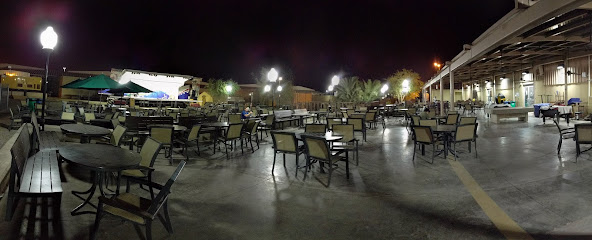
Restaurant La Mer Rouge
Discover the vibrant flavors of the sea and beyond at Restaurant La Mer Rouge, a culinary gem in Djibouti offering a unique dining experience.
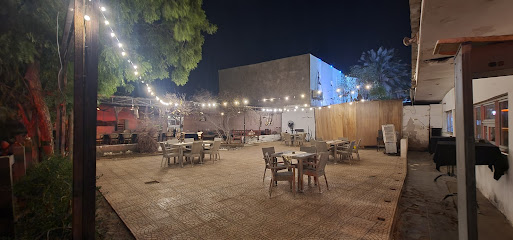
QG Pub & Resto
Experience the rich flavors of Djibouti at QG Pub & Resto, a premier barbecue destination serving grilled delights in a vibrant setting.
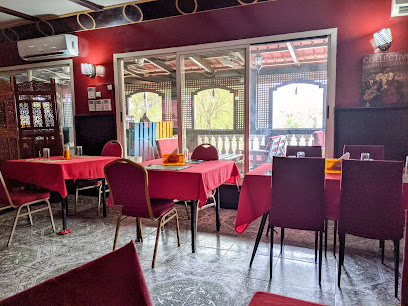
Timeout Restaurant and Sport Bar
Experience the vibrant flavors of Djibouti at Timeout Restaurant and Sport Bar, where culinary delights meet a lively atmosphere.
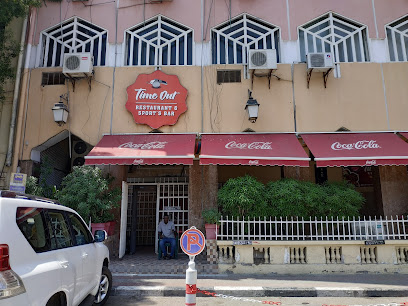
Cantina
Discover the lively nightlife at Cantina in Djibouti, where great drinks and vibrant atmosphere await every visitor.

OKLM café
Discover the vibrant atmosphere and rich flavors at OKLM Café, the ultimate spot for relaxation and socializing in Djibouti.
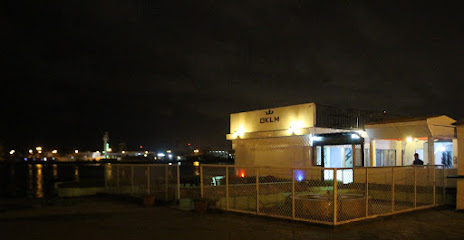
Safari Club Kempinski
Discover the vibrant nightlife and exquisite drinks at Safari Club Kempinski, a premier bar in Djibouti's luxurious Palace Kempinski.

Crystal Lounge Sheraton Djibouti
Experience the perfect blend of local flavors and modern elegance at Crystal Lounge, the premier dining destination in Djibouti.
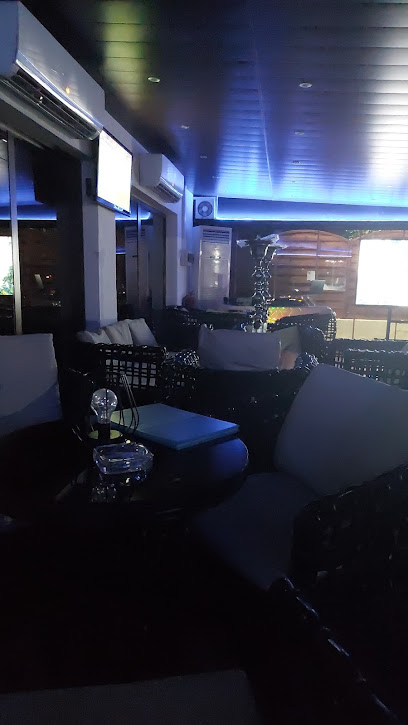
Mystic lounge & restaurant
Taste the vibrant flavors of Djibouti at Mystic Lounge & Restaurant, where culinary excellence meets a warm, inviting atmosphere.
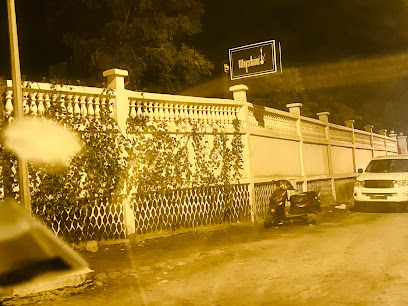
Pub Palmier Zink
Discover the lively Pub Palmier Zink in Djibouti, where local culture and vibrant nightlife come together for an unforgettable experience.
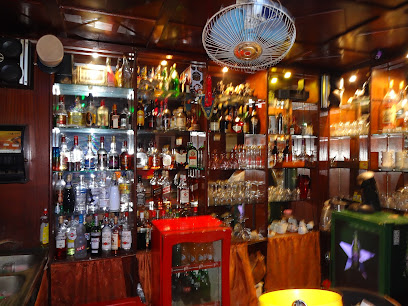
The Goat Locker
Experience the vibrant nightlife of Djibouti at The Goat Locker, a unique bar offering a taste of local culture and refreshing drinks.

B B S Lounge (Bar By Sing's)
Experience the vibrant nightlife at B B S Lounge in Djibouti, where stunning views and a lively atmosphere meet delicious drinks.

Scotch djibouti
Discover the lively nightlife of Djibouti at Scotch Djibouti, where vibrant atmosphere meets an eclectic drink selection for an unforgettable experience.
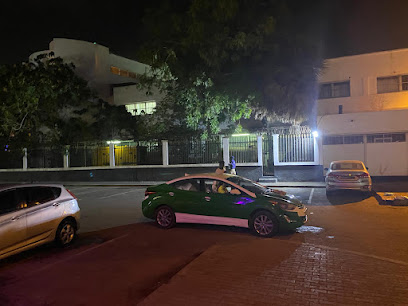
Local Phrases
-
- HelloMarhaba
[mar-ha-ba] - GoodbyeMa'a Salama
[ma-a sa-la-ma] - YesAywa
[ay-wa] - NoLa
[la] - Please/You're welcomeMin Fadlik
[min fa-dlik] - Thank youShukran
[shuk-ran] - Excuse me/SorryAfuwan
[a-fu-wan] - How are you?Kifashalak?
[ki-fa-sha-lak] - Fine. And you?Mniha. Winta?
[mni-ha. win-ta] - Do you speak English?Tatakalam Inglizi?
[ta-ta-ka-lam in-gli-zi] - I don't understandAna Ma Fehim
[a-na ma fe-him]
- HelloMarhaba
-
- I'd like to see the menu, pleaseAza Ara Ayat Alqimah, Min Fadlik
[a-za a-ra a-yat al-ki-ma, min fa-dlik] - I don't eat meatAna Ma Akol Lahm
[a-na ma a-kol lah-m] - Cheers!Sahtain!
[sa-h-tain] - I would like to pay, pleaseAza Ara Ayal, Min Fadlik
[a-za a-ra a-yal, min fa-dlik]
- I'd like to see the menu, pleaseAza Ara Ayat Alqimah, Min Fadlik
-
- Help!Musaid!
[mu-said] - Go away!Imshi!
[im-shi] - Call the Police!Itasil Billashurta!
[i-ta-sil bil-la-shur-ta] - Call a doctor!Itasil Biltabib!
[i-ta-sil bil-ta-bib] - I'm lostAni Dalal
[a-ni da-lal] - I'm illAna Mareed
[a-na ma-reed]
- Help!Musaid!
-
- I'd like to buy...Aza Ashtry...
[a-za ash-try] - I'm just lookingAna Bas Bafham
[a-na bas ba-fham] - How much is it?Kam Hawa?
[kam ha-wa] - That's too expensiveHatha Ghali Jiddan
[ha-tha gha-li jid-dan] - Can you lower the price?Hal Yomkinuk Tahqiq Althaman?
[hal yom-ki-nuk tah-kiq al-tha-man]
- I'd like to buy...Aza Ashtry...
-
- What time is it?Kam Sa'ah Al'an?
[kam sa-ah al-an] - It's one o'clockSa'atin Wahida
[sa-a-tin wa-hi-da] - Half past (10)Nisf Ba'd Al-Asharah
[nisf ba-d al-a-sha-rah] - MorningSabah
[sa-bah] - AfternoonBa'd Alduhur
[ba-d al-du-hur] - EveningAlmsa'
[al-ma-sa] - YesterdayAlamis
[al-a-mis] - TodayAlYawm
[al-yawm] - TomorrowGhadan
[gha-dan] - 1Wahid
[wa-hid] - 2Itnan
[it-nan] - 3Thalatha
[tha-la-tha] - 4Arba'a
[ar-ba-a] - 5Khamsa
[kham-sa] - 6Sitta
[sit-ta] - 7Sab'a
[sa-ba-a] - 8Thamania
[tha-ma-ni-a] - 9Tis'a
[tis-a] - 10Ashara
[a-sha-ra]
- What time is it?Kam Sa'ah Al'an?
-
- Where's a/the...?Wayn Al...
[wayn al] - What's the address?Shno L'Address?
[sh-no l'ad-dress] - Can you show me (on the map)?Hal Tumkinuni Muriat Alkhari'ta?
[hal tum-ki-nu-ni mu-ri-at al-kha-ri-ta] - When's the next (bus)?Mata Alqiyanat Alqadima?
[ma-ta al-qi-ya-nat al-qa-di-ma] - A ticket (to ....)Taqit (ila ...)
[ta-qit (il-a)]
- Where's a/the...?Wayn Al...
History of Tadjoura
-
Tadjoura, one of the oldest towns in Djibouti, has roots tracing back to ancient times. It is believed that the area was inhabited by Afar people for centuries, who lived as nomadic pastoralists and fishermen. The town's strategic location along the Gulf of Tadjoura made it a vital stop in ancient trade routes connecting Africa, the Middle East, and India.
-
By the 16th century, Tadjoura had become a significant trading hub, renowned for its bustling port. It facilitated the exchange of goods such as ivory, slaves, and textiles between Africa and Arabia. The town’s prosperity attracted traders from across the Red Sea and established its importance in the region.
-
In the late 16th century, Tadjoura came under Ottoman influence. The Ottomans recognized the strategic importance of the port and established a presence to control trade routes and exert influence over the Red Sea. This period saw the introduction of Ottoman architectural styles and cultural practices in Tadjoura.
-
In the 19th century, Tadjoura became a focal point for European colonial ambitions. The French established a protectorate over the region in 1884, integrating Tadjoura into French Somaliland. The town witnessed significant infrastructural development, including roads and administrative buildings, under French rule. This period also saw the introduction of Western education and administration.
-
Djibouti gained independence from France on June 27, 1977. Tadjoura, like the rest of the country, embarked on a journey of modernization. Infrastructure and public services were expanded, and the town began to develop its own identity within the newly established Republic of Djibouti. The port of Tadjoura continued to play a vital role in the country's economy, particularly in trade and fishing.
-
Tadjoura is renowned for its vibrant cultural heritage, influenced by Afar traditions and Islamic customs. The town is famous for its traditional dances, music, and festivals, such as the annual 'Assaida' festival, which celebrates local customs and communal harmony. Tadjoura’s white-walled houses and narrow streets reflect a blend of traditional and colonial architecture, offering a glimpse into its rich history.
-
Tadjoura is not only a historical town but also a gateway to some of Djibouti's most stunning natural landscapes. The Gulf of Tadjoura is known for its crystal-clear waters and diverse marine life, attracting divers and snorkelers from around the world. The nearby Day Forest National Park offers a unique biodiversity, including rare species of flora and fauna, making Tadjoura a perfect blend of history and natural beauty.
Tadjoura Essentials
-
Tadjoura is accessible primarily via Djibouti–Ambouli International Airport in Djibouti City, located about 150 kilometers away. From the airport, you can take a taxi or a rental car to reach Tadjoura, which usually takes around 2 to 3 hours by road. Alternatively, you can take a ferry from Djibouti City to Tadjoura, which offers a scenic and more leisurely route across the Gulf of Tadjoura.
-
Once in Tadjoura, transportation options include taxis, which are the most common way to get around. There are also local buses and minibuses (locally known as 'bush taxis') that operate within the town and to nearby areas. For a more flexible travel experience, renting a car is advisable, especially if you plan to explore the surrounding regions.
-
The official currency in Djibouti is the Djiboutian Franc (DJF). Credit cards are accepted in some hotels and larger establishments, but it is highly recommended to carry cash, particularly in smaller shops and local markets. ATMs are available in Tadjoura, but it’s wise to withdraw enough cash in Djibouti City before heading to Tadjoura to ensure you have sufficient funds for your trip.
-
Tadjoura is generally a safe destination for tourists, but it’s important to take standard precautions. Avoid walking alone at night in unfamiliar areas and be mindful of your belongings in crowded places. There are no specific high-crime areas targeting tourists, but staying vigilant and aware of your surroundings is always a good practice.
-
In case of emergency, dial 17 for police assistance and 18 for medical emergencies. There are local police and medical facilities in Tadjoura. It is advisable to have travel insurance that covers medical emergencies. For minor health issues, there are pharmacies where you can purchase over-the-counter medications.
-
Fashion: Do dress modestly, especially when visiting religious sites. Light, breathable clothing is recommended due to the hot climate. Religion: Do respect local customs and traditions. When visiting mosques, cover your head and remove your shoes. Public Transport: Do be respectful to other passengers and avoid eating or drinking on public transport. Greetings: Do greet people with a handshake or a slight bow. Using 'Salam Alaikum' (peace be upon you) is a common and respectful greeting. Eating & Drinking: Do try local dishes and accept food offerings graciously. Don’t refuse hospitality, as it is considered impolite.
-
To experience Tadjoura like a local, visit the local markets where you can buy fresh produce and traditional Djiboutian goods. Engaging with locals can offer valuable insights into the town’s history and culture. Don’t miss out on visiting the pristine beaches and the Tadjoura Bay, which offer excellent opportunities for snorkeling and diving. Additionally, take time to explore the nearby Day Forest National Park, which is renowned for its unique flora and fauna.
Nearby Cities to Tadjoura
-
Things To Do in Arta
-
Things To Do in Djibouti City
-
Things To Do in Obock
-
Things To Do in Loyada
-
Things To Do in Ali Sabieh
-
Things To Do in Dikhil
-
Things To Do in Aden
-
Things To Do in Dire Dawa
-
Things To Do in Hargeisa
-
Things To Do in Ibb
-
Things To Do in Harar
-
Things To Do in Dhamar
-
Things To Do in Mekele
-
Things To Do in Lalibela
-
Things To Do in Sana'a






